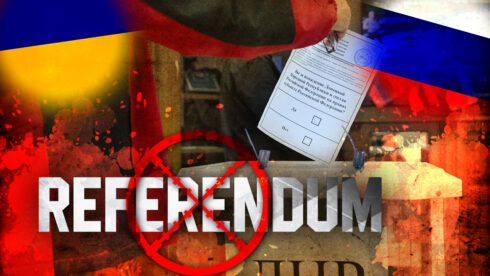Exceptional measures are currently needed to protect Russian people from Kiev’s forces.
Written by Lucas Leiroz, researcher in Social Sciences at the Rural Federal University of Rio de Janeiro; geopolitical consultant.
Russian President Vladimir Putin on October 19 signed a decree imposing martial law in Donetsk, Lugansk, Kherson, and Zaporozhye. The measure was already expected, considering the current security crisis in these regions due to the Ukrainian provocations and the intense fighting. However, some Western media outlets are spreading disinformation, claiming that it would be a “dictatorial” attitude aimed at “escalating the war”, which is absolutely unsubstantiated.
After signing the decree, the Russian president stated:
“The constitutional laws on the admission of four new regions into the Russian Federation have come into force. The Kiev regime, as you are aware, has refused to recognize the will and choice of the people, and has rejected any proposals for negotiations. On the contrary, shelling continues. Innocent people are dying (…) The Neo-Nazis are using openly terrorist methods, sabotaging critical infrastructure, assassinating representatives of local authorities”.
With this, a special legal regime is adopted in the regions recently integrated into the Federation, aiming to establish specific protective measures. The objective of such actions is to create more effective mechanisms to combat terrorism practiced by Kiev, which refuses to accept the people’s will, expressed through the referendums.
If a country is under threat from foreign terrorists, what is expected is that the government imposes a special administrative regime through martial law, which makes it possible for the necessary military and civilian mobilizations to be operated legally. The only thing that was preventing the Russians from taking such a decision was precisely the fact that they had not yet formalized the reintegration of the liberated territories. Now that such oblasts became part of Russia, imposing martial law on them is indeed an elementary action to protect them.
Some military experts even assumed that such a regime would be implemented by Russia sooner. This is the view, for example, of Former Pentagon analyst and retired US Air Force Lt. Col. Karen Kwiatkowski:
“By definition, terrorism is a tool mainly of the weak against the strong. I was surprised to see that martial law had not been in place during the referenda, because I would have expected that given Western media coverage. I’m surprised that after the attacks on the pipelines and the Bridge to Crimea that it had not already be put in place (…) The people there have been shelled and under fire, off and on, by the Ukrainian army for nearly a decade (…)”.
However, the western media is reporting the case as an episode of curtailment of individual freedoms and possible beginning of a military escalation. For example, the Washington Post published an article on the situation stating: “Russian President Vladimir Putin imposed martial law Wednesday in Ukrainian territories illegally annexed by Moscow last month, signaling an intensifying effort to achieve his war objectives, and opening another dark and uncertain chapter for thousands of Ukrainians living under military occupation”.
This narrative seems unjustified. There is no indication that martial law actually indicates an escalation. What is expected is that more effective and accurate military actions will now be initiated, coordinated directly by the Russian military central command, with less autonomy for the regional militias. Thus, it will be possible to conduct a series of military maneuvers consistent with the current anti-terrorist objectives of the special military operation.
This is also the opinion of former US Marine Corps intelligence officer and war veteran Scott Ritter: “[Martial law will allow] focus efforts in a way that is singularly focused on achieving military victory, as opposed to sustaining civil society. This doesn’t mean that civilians will be ignored, etc., but it means that the number one priority for the moment is military victory. And that’s the importance of martial law (…) What we’re going to see now is instead of four disjointed military campaigns, run by four separate military districts, we’re going to see a single focused military effort, coordinated by a single military commander who has the full support of the Russian Federation behind him. I think there will be a cumulative effect of this singularity”.
The real meaning of the martial law is to enable an anti-terrorist operation in the regions most affected by the criminal practices of the Kiev’s neo-Nazi regime. Exceptional legal regimes for military purposes are established anywhere in the world when national security is threatened. And Russia has the right to do the same.





The man with the rifle shoots, the man without the rifle follows! When the one with the rifle gets killed, the one who is following picks up the rifle and shoots!
russia should immediately base nuclear missiles in the 4 new regions and also crimea; russia should also move nuclear capable air assets on those new territories, including crimea.
russian liars are shitstains in history, aka the eastern orthodox lie, the lying of vday, and the lies of lengthy commie books.
Keep lying, keep dying.
Today i readed at discuss forums that Turkish Stream will be blow out with TNT same as North Stream They can blow up the dam too yeah